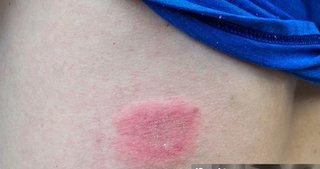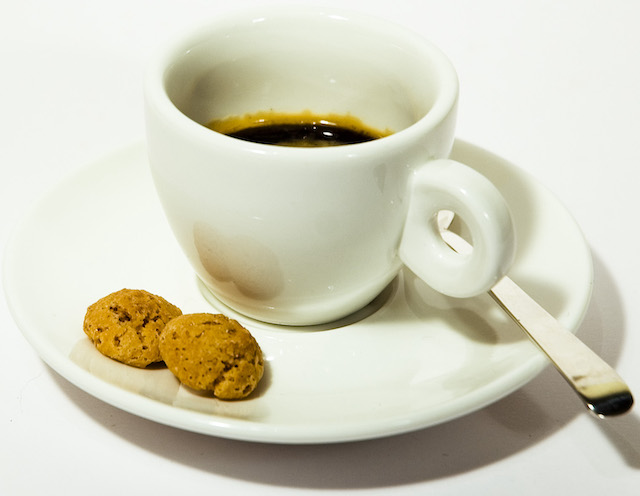Best Diet For My Fitness Goals
When it comes to achieving your fitness goals, whether you’re looking to lose weight, build muscle, increase endurance, or simply improve your overall health, diet plays a critical role. While regular exercise is essential for building strength and improving cardiovascular health, the foods you consume fuel your workouts, aid in recovery, and can significantly impact your results. Understanding the connection between fitness and nutrition is key to optimising your performance and ensuring your efforts yield the best possible outcomes.
In this article, we will explore the best diet strategies for different fitness goals, focusing on how the right nutrition can complement your workout routine and help you achieve lasting results. From macronutrients and micronutrients to meal timing and hydration, we will break down the essential dietary components that align with your fitness objectives. Knowing what to eat and when can make all the difference in your fitness progress.
Role of diet in fitness
To understand the best diet for your fitness goals, recognise the critical relationship between exercise and nutrition. Exercise breaks down muscle fibers and depletes glycogen stores, both of which need to be replenished for recovery and growth. The food you eat directly affects how your body performs during a workout, how well you recover afterward, and how effectively you build muscle or lose fat. A well-balanced diet can enhance energy levels, improve endurance, and speed up the recovery process, helping you perform better in the gym and avoid burnout or injury.
There are 3 primary categories of fitness goals:
1) Fat loss – Focused on reducing body fat while preserving muscle mass.
2) Muscle gain – Aiming to increase muscle size and strength.
3) Endurance and performance – Enhancing stamina, cardiovascular fitness, and overall athletic performance.
Each of these goals requires a slightly different dietary approach. Let’s explore how you can tailor your diet to suit your unique fitness objectives.
Best diet for fat loss and fitness
If your fitness goal is fat loss, the focus of your diet will be on creating a calorie deficit ie., consuming fewer calories than your body needs to maintain its current weight. However, it is essential that this calorie deficit doesn’t come at the expense of nutrition, and you should still aim to maintain or even build muscle mass while shedding fat.
Caloric deficit and macronutrients
To lose fat while preserving muscle, protein intake becomes a central component of your diet. Consuming enough protein helps to maintain lean muscle mass even as you reduce your calorie intake. Studies suggest that aiming for 1.6 to 2.2 grams of protein per kilogram of body weight per day can support fat loss while promoting muscle retention.
In addition to protein, you will want to carefully manage your intake of carbohydrates and fats. While carbohydrates are essential for providing energy during intense workouts, reducing carbohydrate intake can be beneficial for creating a calorie deficit. Focus on consuming complex carbohydrates like whole grains, vegetables, and legumes, as they provide more fiber and will help you feel fuller for longer.
Healthy fats, like those from avocados, olive oil, nuts, and seeds, are also important for overall health and can aid in fat loss by keeping you satiated. Aim to get about 20-30% of your daily calories from healthy fats.
Meal timing and frequency
Meal timing can be a helpful tool for fat loss. For instance, some people find success with intermittent fasting, which involves consuming all of your daily calories within a specific window and fasting for the remaining 16 hours. This can help to naturally reduce calorie intake without the need for extreme restriction.
Alternatively, you can focus on smaller, balanced meals throughout the day to maintain energy levels and avoid overeating. Eating every 3-4 hours helps to control hunger and prevent energy slumps, which can sometimes lead to unhealthy snacking.
Hydration
When working toward fat loss, staying properly hydrated is just as important as managing calories. Water is crucial for digestion, muscle recovery, and overall performance. Additionally, sometimes our bodies confuse thirst with hunger, leading to unnecessary calorie consumption. Drinking plenty of water throughout the day helps to stay hydrated and avoid overeating.
Best diet for muscle gain and fitness
If your fitness goal is muscle gain, the focus of your diet shifts from calorie deficit to calorie surplus. Building muscle requires providing your body with extra energy and nutrients to repair and grow muscle tissue after workouts. It’s also critical to consume adequate protein to stimulate muscle protein synthesis.
Caloric surplus and macronutrients
For muscle growth, a caloric surplus ie. eating more calories than your body burns is necessary. However, avoid excessive calorie intake, as this can lead to unnecessary fat gain. A moderate surplus of around 250-500 extra calories per day is often recommended for muscle gain without excessive fat accumulation.
Protein continues to play a key role in this diet, as it is essential for muscle recovery and growth. Aim for 1.6 to 2.2 grams of protein per kilogram of body weight per day, focusing on lean protein sources such as chicken, turkey, fish, tofu, legumes, and eggs.
Carbohydrates are also essential for muscle gain, providing energy for intense workouts and replenishing glycogen stores after training. Consume complex carbs like oats, sweet potatoes, quinoa, and brown rice, which will support your workouts and keep you feeling energized throughout the day. Carbohydrates also help to boost insulin levels, which is beneficial for muscle protein synthesis.
Fats should make up around 20-30% of your total calorie intake, with an emphasis on healthy fats from sources such as nuts, seeds, olive oil, and fatty fish. These fats help to support overall hormonal health, including the production of testosterone, which plays a role in muscle growth.
Meal timing and frequency
Meal timing becomes especially important when focusing on muscle gain. Consuming protein and carbohydrates both before and after your workouts can optimize recovery and muscle growth. The post-workout meal is particularly crucial for replenishing glycogen stores and providing your muscles with the nutrients they need to repair and grow. Ideally, consume a balanced meal containing both protein and carbs within 30-60 minutes after your workout.
In terms of meal frequency, eating every 3-4 hours can be helpful for maintaining a steady supply of nutrients to your muscles. This helps prevent muscle breakdown and supports consistent muscle growth over time. Some bodybuilders and fitness enthusiasts may even choose to eat 5-6 smaller meals a day to ensure a constant nutrient supply.
Supplements for muscle gain
While food should always come first, certain supplements can enhance muscle growth. Protein powders can be a convenient way to meet your protein goals if you’re struggling to get enough from whole foods. Creatine, a naturally occurring compound in muscles, is another well-researched supplement that can improve strength, muscle mass, and performance during high-intensity exercise.
Best diet for endurance and performance fitness
For those focused on endurance or fitness performance, such as long-distance running, cycling, or other aerobic activities, the diet is designed to provide sustained energy and prevent muscle breakdown during extended periods of exercise.
Macronutrient balance
Carbohydrates are the most important macronutrient for endurance athletes. They are the primary fuel source for prolonged physical activity, and consuming enough carbohydrates is essential for maintaining energy during long workouts. Endurance athletes should focus on complex carbohydrates like whole grains, fruits, and vegetables, and aim to consume about 5-7 grams of carbs per kilogram of body weight per day, depending on training intensity and duration.
Protein remains important for recovery and muscle maintenance, though the emphasis is less on muscle growth and more on preventing muscle breakdown. Consuming around 1.2 to 1.4 grams of protein per kilogram of body weight per day can help with recovery, especially after long training sessions.
Healthy fats continue to play a role in endurance diets, providing long-lasting energy for extended exercise sessions. Aim to get about 20-25% of your calories from healthy fats, focusing on sources such as avocados, nuts, seeds, and fatty fish.
Hydration and electrolytes
For endurance athletes, hydration is critical for maintaining performance, preventing fatigue, and avoiding heat exhaustion. Sweating leads to the loss of both water and electrolytes, and replacing them during exercise is essential. Water is the primary hydration source, but sports drinks that contain electrolytes may be helpful during long training sessions or events. Replenish fluids after workouts to aid in recovery, so drinking water or an electrolyte-replenishing beverage after exercise is a good practice.
Thoughtful fitness
The best diet for your fitness goals depends on your individual objectives. Regardless of your specific goals, there are several key principles that should guide your nutrition. Focus on consuming adequate protein to support muscle repair and growth, manage carbohydrates to fuel your workouts, and include healthy fats for health and recovery.
In addition to macronutrients, the timing of your meals, hydration, and calorie intake should be adjusted to match your fitness goals. A well-rounded diet, aligned with your fitness routine, can accelerate your progress, enhance your results, and ensure you stay on track for the long term.
Remember, fitness is not just about working hard in the gym. It is about giving your body the right fuel to perform at its best. Tailoring your diet to your specific fitness goals and sticking to a nutrition plan that supports those objectives will make all the difference in achieving success. A thoughtful, balanced diet is the foundation of your fitness journey.



